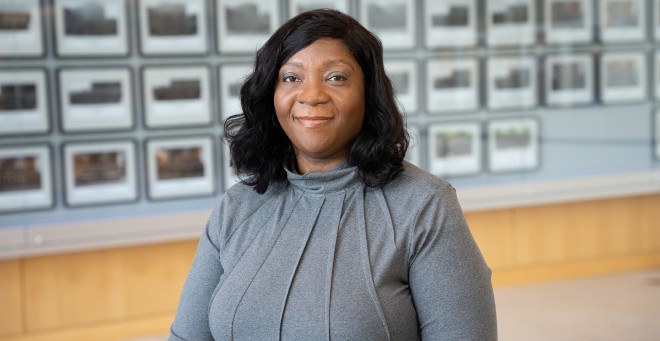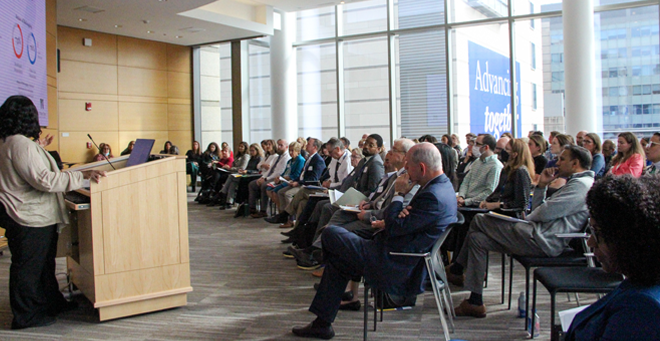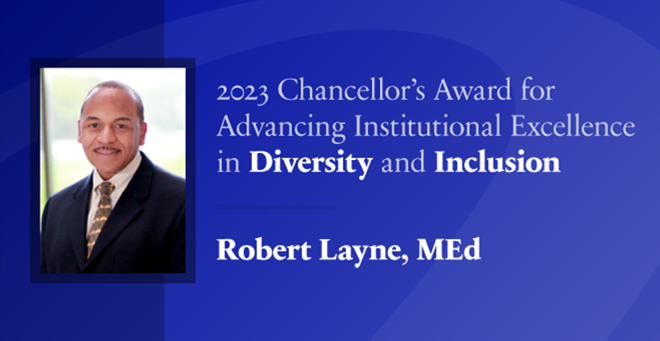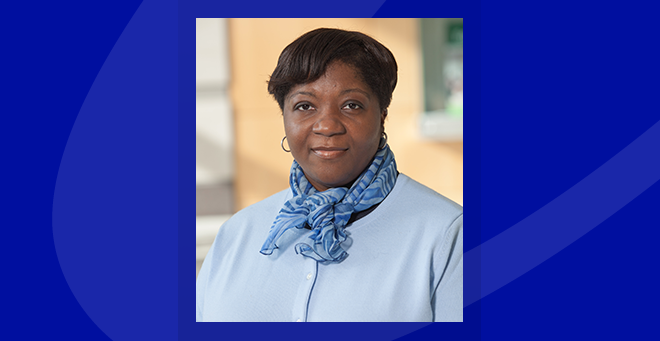
Chancellor Michael F. Collins named Sharina Person, PhD, the Dr. Marcellette G. Williams Senior Scholar and vice chair and professor of population & quantitative health sciences, the recipient of the 2024 Chancellor’s Award for Advancing Institutional Excellence in Diversity and Inclusion at the 36th annual Martin Luther King Jr. tribute held virtually on Jan. 31.
Dr. Person was instrumental in the development of the Diversity Engagement Survey in partnership with the Association of American Medical Colleges. The survey has become a resource for academic medicine and has been administered to 170,000 respondents at more than 100 institutions across the country.
“The results of the Diversity Engagement Survey are helping medical schools and academic medical centers improve and transform a variety of areas, from institutional and diversity, equity, and inclusion specific mission and vision statements to admissions, hiring and promotion processes and practices,” said Chancellor Collins.
“Through her determined, detailed and diligent efforts to collate, summarize and communicate our results, Dr. Person has provided us with a framework of consistently measuring and improving our culture and climate and directing our efforts toward those areas that require attention.”
Keynote speaker Joan Y. Reede, MD, MS, MPH, MBA, dean for diversity and community partnership and professor of medicine at Harvard Medical School, spoke about inclusion, equity and justice.
Dr. Reede reminded attendees to, “understand the importance of a past in which policies, practices, rules and regulations were put forth that included some and excluded some and that set a stage for who belonged and who did not belong.” She said such policies set the stage for disparities present in health care and other aspects of society today. For Reede, the work of diversity, equity and inclusion serves three functions.
“It is about us realizing our values. It is about addressing complex issues and ensuring viability,” she said. “It is not about how we just achieve diversity and change what the picture looks like on the wall in the room. It is about understanding how diversity enables us to achieve excellence, inclusive excellence where diversity and excellence are not mutually exclusive, where we recognize the importance and value of ensuring that all in our environment are able to achieve their potential, are able to contribute and that we work in very intentional ways and we collaborate across our systems to provide opportunities for individuals to excel.”
Reede’s call to action was to act now to make a difference.
“We must work together to create positive change,” she said. “Each of us has a duty to be able to speak to those values that guide our profession, to be in rooms and spaces where we speak up when the actions and behaviors are not consistent with the values that we espouse. We must be strengthened by victories, be they large or small, because they will continue to move us forward.”
Marlina Duncan, EdD, vice chancellor for diversity and inclusion, called the talk inspiring, noting, “It is very easy to get stuck in the problems, but you are so correct, we have come so far and with collective work, we can continue to move forward.”


